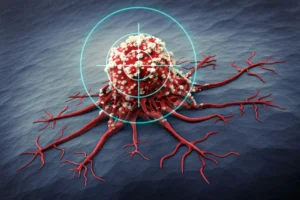
THC tinctures have gained popularity as a discreet and precise way to consume cannabis, offering a controlled and potent experience. Tinctures are liquid extracts, often alcohol-based, that contain the active compounds of the cannabis plant, including tetrahydrocannabinol (THC). Understanding the science behind the effectiveness of THC tinctures involves exploring how THC interacts with the human body and the unique characteristics of thc tincture delivery.
THC and the Endocannabinoid System:
THC, the primary psychoactive compound in cannabis, exerts its effects by interacting with the endocannabinoid system (ECS). The ECS is a complex network of receptors, enzymes, and endocannabinoids that play a crucial role in maintaining homeostasis within the body. The two main types of receptors in the ECS, CB1 and CB2, are found throughout the central nervous system and immune system, thc tincture respectively.
When THC enters the body, it binds to CB1 receptors in the brain and nervous system, mimicking the actions of naturally occurring endocannabinoids. This interaction leads to various physiological responses, including alterations in mood, perception, and pain sensation. The potency and rapid onset of THC’s effects make it a sought-after compound for medicinal and recreational purposes.
Advantages of Tincture Delivery:
Tinctures offer a unique method of cannabis consumption, providing several advantages over traditional methods like smoking or edibles. One key benefit is the rapid onset of effects. When a THC tincture is administered sublingually (under the tongue), the cannabinoids are absorbed directly into the bloodstream through the mucous membranes, bypassing the digestive system. This results in faster onset, typically within 15-45 minutes, making it an appealing option for those seeking quick relief.
Moreover, tinctures allow for precise dosing. The liquid form of the tincture facilitates accurate measurement, enabling users to control their THC intake more effectively. This is particularly important for medical users who require specific doses for symptom management without the variability often associated with edibles.
Bioavailability and Absorption:
Bioavailability refers to the proportion of a substance that enters circulation when introduced into the body and is made available for use or storage. THC tinctures boast high bioavailability, especially when compared to edibles. While edibles must first pass through the digestive system, subjecting cannabinoids to metabolic processes, tinctures avoid this delay, resulting in more efficient absorption.
The alcohol base of many tinctures also enhances bioavailability. Alcohol is an excellent solvent for cannabinoids, effectively extracting and preserving their potency. Additionally, alcohol promotes vasodilation, widening blood vessels and enhancing absorption.
Conclusion:
The effectiveness of THC tinctures stems from the intricate interplay between THC and the endocannabinoid system, coupled with the advantages of tincture delivery. Sublingual administration, rapid onset, precise dosing, and high bioavailability contribute to the appeal of THC tinctures among both recreational and medicinal cannabis users. As research in cannabis science progresses, a deeper understanding of these interactions may pave the way for further innovations in cannabinoid delivery methods and therapeutic applications.






